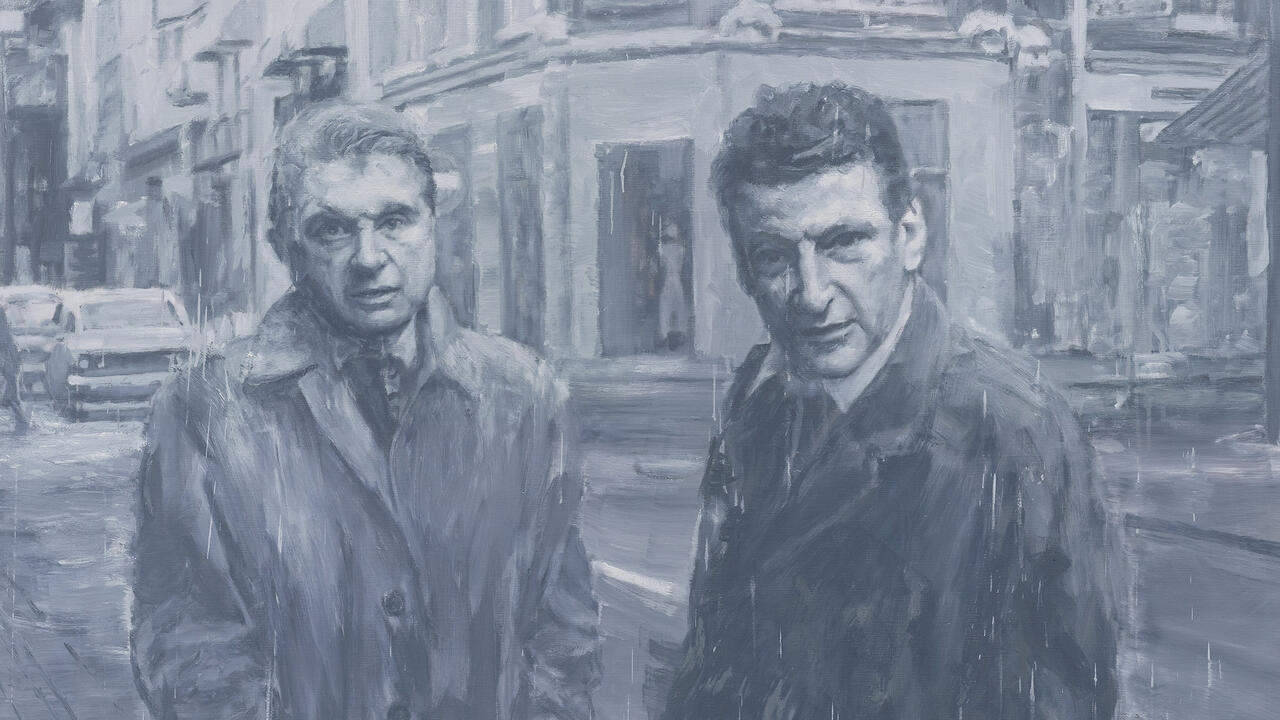Big Mouth Strikes Again
Victor Lewis-Smith's television criticism
Victor Lewis-Smith's television criticism
Say 'critic' in London and a single name springs to mind: that of Brian Sewell, art critic of the Evening Standard, whose pretence that his taste is affronted by any and every encounter with the new has turned him into a national laughing-stock. Apparently unable to understand or enjoy any current art whatsoever, Sewell relies on a single response, based perhaps on the moment in the Ealing Studios version of The Importance of Being Earnest when Edith Evans, nostrils flaring, bellows 'A handbag?' How predictable it seemed when the Standard plumped for Victor Lewis-Smith as their new television critic, supposing, perhaps, that his track-record for blatant rudeness would automatically turn him into a convenient Sewell clone. And how jubilant they must have been when Lewis-Smith began his salvos of invective, though calling Gareth Hunt 'human Polyfilla' and the Good Morning show 'meaningless pap' are claims with which no sane person could disagree. Unlike the writing of Sewell, whose wordy, snobbish, uninformed attacks make him look like a connoisseur, there is method in Lewis-Smith's madness. For, unlike British art, which (unknown to Sewell) has been improving steadily and has now reached a high-point, the deterioration of British television in recent years has meant that in order to stop the rot, taking the offensive may be the only remaining option.
In a comparatively short time, Lewis-Smith's criticism has served as a parallel to television's main defects. Take that imagined intimacy which daytime television is so proud to encourage. Lewis-Smith has his own ideas about uninvited guests, working on the basis that if strangers try to enter your house pretending to be friends, you have every right to throw them straight back out again. In his name-calling and hectoring, he also highlights television's potential role as a national debating chamber: a far larger one, of course, than the Houses of Parliament. For his strategy is also directly political. When Lewis-Smith calls Brian Conley 'a man with all the charisma of a Wigan bingo-caller', you feel he is protecting viewers' rights to quality television by registering a negative public response on their behalf. Television licenses cost money, after all.
There are different schools of thought about what television critics should be doing. The doyenne of the medium, The Guardian's Nancy Banks-Smith, approaches her subject by uttering a parallel text in stream-of-consciousness style. Right inside the programmes she writes about, she quotes and contributes, seldom 'criticising' except in an interiorised way. In comparison to her permanent dream state - a breathy, Joycean burble - Lewis-Smith seems distanced and subversive, like a visitor looking for trouble. 'Paula Yates gave Joanna Lumley an in-shallow probing', he reports, about the worst interviewer on television. Or, of Peter Snow introducing the Budget: 'The clichés came trotting out as neatly as dressage ponies'. Understatement may play its part - 'It's been a hell of a programme,' said Vanessa... and I could hardly disagree' - but so does the occasional downright attack. His Rottweiler treatment of Alan Whicker's grovelling interview with the Sultan of Dubai was justified, for example, for by that time Whicker's once brilliant technique had toppled into caricature. His continuing critique of Esther Rantzen's 'naked sensationalism' highlighted a problem which has only increased, for since his book of selected writings, Inside the Magic Rectangle, was published last year, Rantzen has made the mistake of savaging a South London home for old people by claiming the incompetence of staff and getting her facts wrong.
As a critic, Lewis-Smith has one great strength: his sense of humour. Not surprisingly, his essays on British comedians are gems. Eric Sykes was a deconstructionist, he argues, and to prove the point we are reminded of Eric in the bath playing with his boats, or his sister Hattie sitting on a neighbour's cello, then trying to mend it with Sellotape. Nothing could be more English, more understated. Equally near to Lewis-Smith's heart, though, was the Scottish comedy series Rab C. Nesbitt. ('Rab C. Nesbitt. Say it loud and there's music playing. Say it soft and it's almost like praying...') In his support for the character of Rab, a man whose Scots dialect is so strong that only one word in six can be understood and whose clothes you can almost smell through the screen, Lewis-Smith reveals his literary roots. These are most evident in his columns for Private Eye: a kind of lived Surrealism, where he plays no part except to select quotations supplied by readers from newspapers of the world.
The incensed correspondent who called his work 'lavatorial juvenilia' was perfectly correct, of course. But he didn't take it far enough. It is not only playful; it is also violent to a degree. Indeed, there may be deep psychological connections between a box with pictures we yell back at - who hasn't? - and a Punch and Judy show. (Alfred Jarry would have loved it.) The only difference is the strange bodilessness of television, a crime for which Lewis-Smith makes amends by galumphing into the grotesque. He never has to look far for victims. Judith Chalmers, the announcer of a programme about where to go on holidays, sports 'a suntan that would shame your average Hiroshima victim', he informs us. ('I find her nauseating', adds Mrs. Agnes Kindersley, a correspondent whose critical line has a suspicious amount in common with Lewis-Smith's own.) Such interruptions to his prose mean that any excursion into Lewis-Smith country double as a short course in Postmodernism, with texts and subtexts playing ducks and drakes as we read. It is this tangle of opinion and response that British television creates and which Lewis-Smith's book perpetuates. His first triumph has been to bring another, higher level of literacy to the art he practises. The second has been to help television companies realise that they cannot get away with murder. And that is Lewis-Smith's cleverest move of all.

















